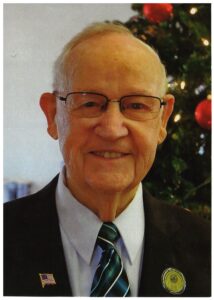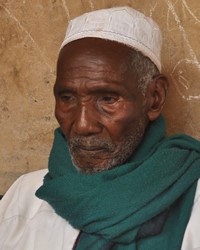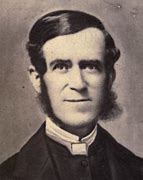October 24, 2018
No Comments
What are you going to be when you grow up? Do you remember being asked that question as a child? (If you are forty and still being asked that, you might have a problem!) A child dreams of becoming a hero: cowboy, fireman, doctor, nurse, sports superstar, astronaut, etc. His dream changes often; as he moves into adolescence, the dream becomes more serious. The young person may even begin to prepare to make the dream a reality. This is certainly not a bad thing. We encourage young people to study and work hard to follow their dream, to become something and someone useful to society.
If the young person is a Christian, he may conclude that his desire (dream) comes from God and is God’s will for him. He may even proclaim, “This is what God has called me to do.” After all, he is going to use his honorable profession to provide for his family, to help others, and to support the work of God. He may even give to send out missionaries.
Some of us can’t help but question if God would call so many to be doctors, lawyers, truck drivers, builders, oilfield roughnecks, computer programmers, car salesmen, pastors, police officers, and a hundred other things, but call very, very few to preach Christ beyond our borders. As the world population expands, our missionary force shrinks. That God would not call enough missionaries seems strange. The dreams of his children are being realized, but the desire of the heathen for a better life now and for Heaven when they die is not being realized. The problem must be with God’s people, not with God. It may be that most of God’s people are not listening for a call or expecting one. Would they even recognize it if it came? Perhaps some have been given a distorted view of the call. They see it as some supernatural, spine-tingling, irresistible, overwhelming, emotional experience that irrevocably propels a special, super-spiritual Christian to the regions beyond. Since it doesn’t happen to them, they conclude that God has not called them to be missionaries. They may honestly believe they have good reason to stay home.
A common attitude seems to be, “Lord, if you want me to go, make me.” Why not rather, “Lord, if you don’t want me to go, please stop me.”? It could be that God simply is not going to show His will to a Christian who is unwilling to sacrifice his personal desires and do His will. I beseech you therefore, brethren, by the mercies of God, that ye present your bodies a living sacrifice, holy, acceptable unto God, which is your reasonable service. And be not conformed to this world: but be ye transformed by the renewing of your mind, that ye may prove what is that good, and acceptable, and perfect, will of God. God shows us His will after the sacrifice and transformation. Our thinking is backward; we want to know His will first so we can decide if we will surrender to it or not.
The time has come for young people (and some not so young) to lay their dream on an altar and go to the mission field for the glory of God and the salvation of the lost! What dream or desire is too wonderful to sacrifice for Jesus? What goal could possibly compare to preaching Christ to those who have never heard His name and the joy of seeing them one day in Heaven? What profession could compare to translating the first Bible in a Bibleless language?
You may say, “I would not feel comfortable in a foreign country.” Well, sacrifice your feelings and your comforts along with your dream! You say, “I don’t know if I could be happy away from family and friends.” There is room on the altar for your happiness, too! Sacrifice your happiness and God might give it back to you. Missionaries are not unhappy, miserable souls that hate the place God has sent them. They become comfortable and enjoy new people, languages, and cultures. Speaking of happiness, Jesus died for all and desires their eternal happiness. Don’t you think all should hear about it?
Perhaps you say, “What if God doesn’t want me on the mission field?” Maybe He doesn’t. But you will never know until your dream is nailed to the cross. God can close the door to keep you from going or show you clearly that He has something else for you at home. Say with Isaiah, “Here am I; send me.” Or with Saul of Tarsus, “Lord, what wilt thou have me to do?” God is still accepting volunteers! “Then said Jesus unto his disciples, If any man will come after me, let him deny himself, and take up his cross,[and sacrifice his dream] and follow me.” The heathen sit in darkness and perish in Hell while we pursue our dreams. Meanwhile, we have a perfectly clear command: “Go ye therefore, and teach all nations.”
The missionaries you meet all gave up their dreams. Very few of them dreamed all their life of being a missionary. They don’t go to another place because they have nothing else to do with their life here at home. Anyone who can learn a new language and communicate well in another culture could surely make it big in business or politics. Anyone who can endure the hardships of deputation and the foreign field could succeed in just about any profession. (And earn a lot more money!) The missionary sacrificed his dream; would you sacrifice yours, too?
In time of war, soldiers put their dreams on hold or give them up forever. Brethren, we are in a battle to liberate souls that Satan has taken captive at his will. The call (or command) to arms has gone out. The pagan who trusts Christ couldn’t care less if the messenger was a draftee (called) or a volunteer; he just praises God that someone finally brought him the Gospel! (But, oh that the messenger would have arrived before his mother and father died!)
A man once told Jesus that he would be a disciple, but only after he cared for his aging father and collected the inheritance upon his father death. (Some of that is found between the lines.) Jesus told him, “Let the dead bury their dead: but go thou and preach the kingdom of God.” We might say it like this: Let the world do what it can do, and you do what the world cannot do–preach the Gospel. In other words, let the world chase its dreams; you sacrifice yours!
 Brother Johnny Leslie, missionary to Croatia, was preaching about John the Baptist having his head cut off. He should have said odrezati but instead said narezati. Both words mean “cut,” but the congregation roared with laughter because narezati is only used when talking about slicing something like salami!
Brother Johnny Leslie, missionary to Croatia, was preaching about John the Baptist having his head cut off. He should have said odrezati but instead said narezati. Both words mean “cut,” but the congregation roared with laughter because narezati is only used when talking about slicing something like salami!




 There was no headstone for Charlotte Rowe until her name was uncovered among the missionaries appointed by American Baptist International Ministries during research as it prepared for its 200th anniversary.
There was no headstone for Charlotte Rowe until her name was uncovered among the missionaries appointed by American Baptist International Ministries during research as it prepared for its 200th anniversary.




